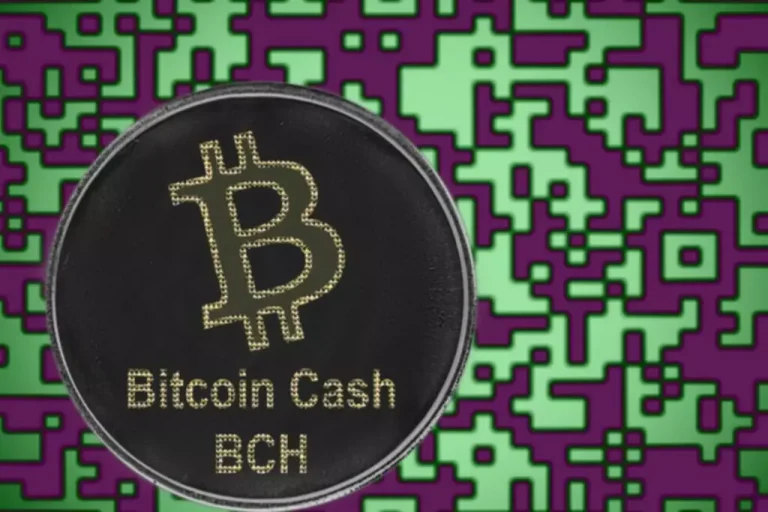Content
Each serves a unique and essential role in the world of digital assets. By understanding the key differences between crypto exchanges https://www.xcritical.com/ and wallets, you can make informed decisions about safely managing your cryptocurrency investments. Hot wallets are software-based wallets that connect to the internet.
Can I use my credit card on a cryptocurrency exchange?
It’s designed to keep your assets safe and accessible, allowing you to manage and use your digital funds. Exchanges play a crucial role in the digital currency ecosystem. They facilitate crypto transactions, provide liquidity, and often offer additional services like lending or staking. They’re the hubs of crypto trading activity, providing crypto wallet vs exchange users the tools to actively manage and grow their digital wealth.
Crypto Wallet vs Exchange Storage
- Instead, a crypto wallet is a software program that stores and secures files containing your private keys.
- Thus, if you want full control over your cryptocurrencies, and have easy access, a cryptocurrency wallet is the route to take.
- Exchanges also provide a wallet—but you don’t necessarily have full control of that wallet.
- Balancing convenience with security is critical as users navigate the diverse landscape of crypto wallets.
- Both types play a crucial role in the crypto world by providing liquidity and helping set prices for digital currencies.
- They provide a platform for buying, selling, and trading various cryptocurrencies with ease.
This introduces a level of risk as exchanges can be susceptible to hacking or other security breaches. If you are new to cryptocurrency and still learning how to invest in Bitcoin and other currencies, you might be better off keeping part of your funds in an exchange wallet. You can quickly trade digital funds and it makes the process much easier to manage and oversee. In fact, major Bitcoin exchanges such as Binance and Coinbase will set up your storage automatically.
Is it better to have a wallet and an exchange account for crypto?
The Phantom wallet eventually expanded to more chains, including Ethereum and Bitcoin. It’s also launched as a mobile application for iOS and Android. Exchanges like Coinbase, which we think is the best choice if you’re looking to buy Bitcoin, provide you with a Bitcoin wallet hosted by that website. So, we mentioned before that a Bitcoin wallet is a software program in which you store Bitcoin. To understand what a Bitcoin wallet is, it’s important to understand what Bitcoin is and how it works.
Is it safe to use an exchange wallet?
Exchanges are there to conveniently trade cryptocurrency, therefore storing Bitcoin there might be convenient for a short period of time. However, it is highly recommendable to ultimately transfer funds to a wallet where the user is responsible for securing, backing-up and managing his own funds. This is where the importance of knowing the difference between a crypto wallet and exchange comes in handy. Your choice should reflect what you’re after, whether holding assets securely for a while or trading often. Crypto tools are advancing, bringing new features that serve different needs.
While interconnected in the digital currency ecosystem, each solution serves distinct functions. The average person may, at a high level, think of us as a digital currency bank, but we’re not a bank. When your money is sitting in a saving account, your access to it and what you can do with it (withdraw, spend, etc.) is determined by the bank’s policies. Furthermore, banks can use the money you deposit to issue loans or make investments. In short, with a bank, you don’t completely control your money at every moment. It initially launched as a Solana-exclusive desktop wallet and is a popular option for Solana users.

You don’t have worry about securing, backing up, or otherwise managing your own Bitcoin wallet. The exchange’s website will be more secure than many people’s computers. You don’t need to install and manage a Bitcoin wallet program. You don’t have to worry about losing your Bitcoin if you forget your wallet’s password or lose all copies of the wallet files.
That’s why using your own wallets, maintaining multiple wallet backups and keeping them secure offline is a must for anyone seriously investing in crypto. An exchange address is an address provided by an exchange for deposits and transactions within the platform. A wallet address, on the other hand, is an address used by your personal cryptocurrency wallet to store and manage your crypto assets securely. Are you planning to hold your cryptocurrency for the long term, or are you an active trader? If you’re a long-term holder, a crypto wallet may be a better option as it offers higher security and control over your funds.
If you’re a beginner, you may find an exchange more user-friendly and easier to navigate. If you’re experienced and comfortable with managing your own security, a crypto wallet may be a better choice. If you want access to a wide range of cryptocurrencies and trading pairs, an exchange may be more suitable.
The public key is safe to share with anybody who wants to send you some cryptocurrency, much like you would a checking account number. The private key, however, must be carefully safeguarded, as anybody who gets their hands on it will be able to take control of your holdings. What a wallet actually “stores” is your private key, without which no crypto transactions would be possible. In essence, a cryptocurrency wallet is software that enables users to store digital assets like NFTs or other cryptocurrencies. Your access to your cryptocurrencies is provided by private keys, which act as master passwords in crypto wallets. Since they aid in safely securing your crypto currency, these private keys are crucial.

It allows users to send, receive, and store their digital assets. It’s important to understand these differences to choose the right platform for your specific needs and preferences. When using a crypto wallet, you have complete control over your funds. You are responsible for managing your private keys, which are used to access and authorize transactions. This gives you the freedom to manage your cryptocurrencies as you see fit.

Hardware crypto wallets, on the other hand, have an upfront cost as you have to pay for the device itself. Decentralized exchanges (DEXs) revolutionize crypto trading. They enable direct peer-to-peer transactions without intermediaries, enhancing privacy and control. DEXs leverage automated market makers (AMMs) to facilitate trades across multiple blockchain ecosystems. On the other hand, when you store your digital currency in an exchange account, often known as an exchange wallet, you cede some of that total authority to the platform.
Both options offer unique advantages and trade-offs, making it essential to understand their differences and how they align with your investment goals. In this article, we’ll explore the key features of crypto wallets and exchanges, helping you make an informed decision on where to store, hold, and trade your cryptocurrency. A crypto wallet is primarily designed for storing, sending, and receiving cryptocurrencies. It provides a secure way to hold your digital assets and gives you full control over your funds.
Users can buy and sell bitcoin, even trade coins, on these platforms, just like trading stocks or commodities on traditional exchanges. And this brings us back to the issue with using a crypto wallet vs exchange storage already discussed. If your wallet is on an exchange, you don’t control the private keys—the exchange does. And that introduces the problem of trust that digital currency is supposed to do away with.
Understanding the difference between a crypto wallet and a crypto exchange is crucial in the digital currency landscape. Wallets store private keys securely, while exchanges facilitate buying, selling, and trading. Accessibility also varies significantly between crypto wallets and exchanges. Wallets offer immediate access to funds for sending and receiving cryptocurrencies, accommodating quick transactions directly from personal devices.